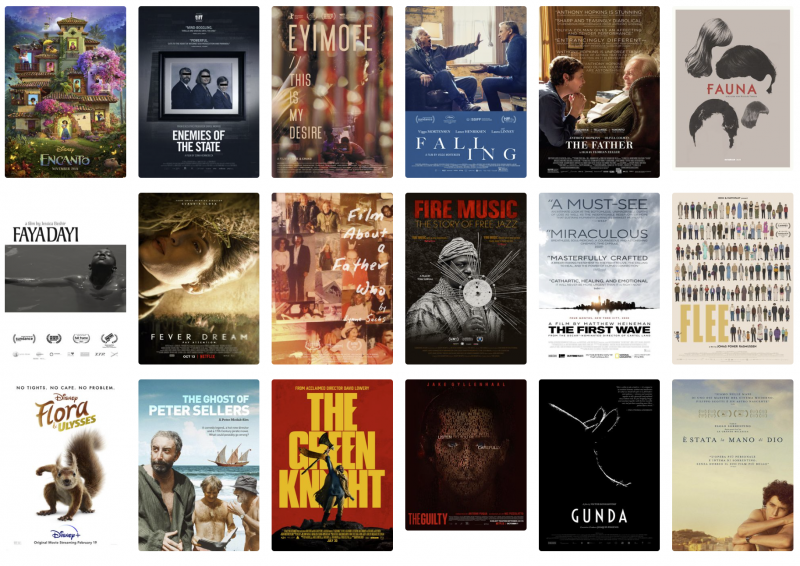
Best Movies of 2021: Film About a Father Who
https://www.nytimes.com/interactive/2025/movies/best-movies-since-2000.html#2021
Explore 25 years of NYT movie coverage, and find your next film from this collection of critics’ favorites from each year.

https://www.nytimes.com/interactive/2025/movies/best-movies-since-2000.html#2021
Explore 25 years of NYT movie coverage, and find your next film from this collection of critics’ favorites from each year.
IMAGEN TV PLUS INTERVIEW TRANSCRIPT
LYNNE SACHS
And as far back as I can remember, dad engaged with the world in ways that inspired, excited and sometimes confused me. How do you feel, dad? Very funny. Oh, let me go do my hand.
NICOLE RIVERA
So nice to meet you. I’m glad to have you here for Imagen TV Plus. And tell us a little bit about the documentary that you present these [films from] 2024 to and for Ambulante. Yes. Go ahead.
LYNNE SACHS
Well, actually, I’m having a retrospective, so I showed 15 films in four programs. Okay. And then, some of them were feature length films, and some of them were short films. And then I also taught a master class where I showed some films and talked about the relationship between film and poetry. And then lastly, I taught a workshop, called Opening the Family Album, which covered a whole month of interactions with 16 participants, 16 artists, filmmakers from Ciudad de México. We met several times on zoom, and then we met in person, and then we created a live expanded cinema documentary performance. So I was very involved with Ambulante.
NICOLE RIVERA
Wow. It’s amazing. I totally… I didn’t know that, but it’s amazing. And I feel like it’s really on the line of the work you made that is really personal. So tell us more about… about you, about how you become a part of the cinema environment. how you decide to create the personal masterpieces.
LYNNE SACHS
I don’t know if I have made any masterpieces, but I have made a lot of films. and some of them are very short. The shortest one is 90s, and the longest one is 83 minutes. So it’s a full range of films. But I got involved in filmmaking because I was very interested in images. I was very interested in history, but I was also interested in what’s going on in the world and how we as artists can engage in very deep ways and begin to ask people to question their reality. And so film seemed like the right place for that, because film can contain all of those sensibilities in one space
NICOLE RIVERA
And of course, actually this topic that you, mentioned about to question your reality, it’s really interesting for me talking about your job because, the documentary that I have the chance to check, it’s, to the, I mean, okay, the documentary that present, it’s about the Chinese community in New York. It’s amazing to see it because I feel like, like Mexican, like people who didn’t live in New York. We had this image of New York that the American cinema and Hollywood sell to us. So to see another perspective of New York is pretty interesting, because it’s a reality that we don’t know and we don’t even imagine.
So how… how do you feel to share with the world this, this other side of, of places that we think we know, we don’t know. And we can see the other faces of the cities that are so famous. But this place is not. Tell me, tell me more about that.
LYNNE SACHS
Really love your question. I think that is exactly why I make films. I want to look at the other side of reality. Because in our culture, the global culture, sometimes we think the reality that is produced by commercials, by Hollywood is an opportunity to understand how a place or a person lives. It exists. But that’s not true. And that’s the job of a documentary filmmaker. And so actually, I’ve been making many films before I made your Day Is My Night, but I decided that I wanted to commit myself to looking at my own city and not to need an airplane ticket to make a documentary film. A lot of people think the job of a filmmaker who works with reality is to first buy a plane ticket and go somewhere exotic, and to begin to understand that maybe I’ve done that enough in my life. So I wanted to understand the reality that’s around me all the time. And also to see that my city, New York City, has many different layers of experience. So I decided I wanted to understand the experience of immigration and what it is like for people who are living in a place but only temporarily, or people who are having to share a home in order to make it possible to be where they want to be. And a new understanding of what family is. The family isn’t just a father, mother, and three kids.
A family is… can be something more, surprising. And it can be where you feel calmest and where you feel that you can be yourself. And I saw that when I started to talk to the people in Your Day is My Night, many of whom came here decades ago. So they were reenacting their lives from before, and some of them were articulating their lives from the present course. And actually, I think that’s a beautiful part of your job. It’s not about, like, to go somewhere exotic is to go inside to understand, the, the places that form part of your own life in case of New York as part of your life, because you’re from Brooklyn, and I think this this is so personal because you you have to go inside of these people lives. And I think that could be really telling you more than to cross the world, to go to another place you used to contact with the people next to you sometimes could be really challenging.
NICOLE RIVERA
Can you tell me more about…
LYNNE SACHS
That’s exactly true, because, for example, I rode the subway yesterday in the metro here in Mexico City, and when you’re on the train, you’re very close to other people. But you don’t say, excuse me, could you tell me about your life? Yeah. And, so I think that it’s very delicate because in documentary film, you don’t want to knock on the door or the window and say, open up your life to me because I’m powerful, or I carry the camera, or I’m from another part of this society, and I want to know how you live your life, which is very different from mine, because you don’t want to be voyeuristic. You don’t want to just look in and exploit. So for me, it’s very important to establish relationship and to work with people who are your subjects also as your collaborators, as the people who can also come up with creative ideas and they can say, this is good for me, this is not good for me. and so I think there’s a lot of listening and collective, processing that can happen within a documentary that usually doesn’t happen in a narrative film, because in a narrative film, you have the executive producer, then you have the director, and then you have all those other people. Oh, I forgot way up here… the movie stars. So you have the executive producer, the movie stars, and the director, and everybody else is kind of secondary. so I think that you need to break up that hierarchy. Yes. Because it’s not about telling a story that you want to tell. It’s to hear a story and to let others talk through your camera.
NICOLE RIVERA
You it’s like, yeah, it’s like, work. They work together. Yeah. So I think it’s… it’s beautiful. But I don’t know what you think. This is the way I see documentary. You are not just entering the life of this person. You let them enter into your life. So true, so true. So I want you to know, to tell us about how this process had been for you to let them enter into your life.
LYNNE SACHS
Yeah. I loved when you said that in a documentary, you don’t go to the set with an agenda. You don’t go with a thesis. I’m trying to prove something. You go to listen. Not well… I think there’s a difference between listening and hearing. You always hear. But when do you listen? And I think you brought up that distinction. So, for example, with Your Day is My Night. I made that film over about a year and a half, but then I have remained in contact with the people in the film. So we have lunch, and we meet for additional screenings. There are ways that we can try to stay in contact. Two of the women in the film are now in their early 90s there, and they’re still doing well. So I feel very honored that I met them in their early 80s. Now they’re in their early 90s, but their role models, for me, they’re heroes. I think that’s beautiful about great documentaries like the way your life, the story. You know, you experience the story when you are telling it to the others. It’s different than cinema that you just tell a story.
NICOLE RIVERA
You finish this and that’s all… know you did you become part of that. So I want you to tell us all your story. That would be…which how would you feel about the experience that you have been in all this process? Who was main, learning about this, the oldest project in your life to be a documentary?
LYNNE SACHS
Like, who was a mentor or an inspiration? Yeah. Well, I was very inspired by a French filmmaker who’s extremely famous. He died, his name was Chris Marker, and he made films going back to the late 1950s. And he was very much an observer. But he also brought another side that’s very important to me, which is he had a lot of introspection and he had a lot of doubt. And I think when you’re making these kinds of films, you have to maintain your doubt. So you have to always question your assumptions and. Find yourself with your subjects and, and realize that the obstacle to working with that person might be what’s most important and that that questioning of yourself, the ability to cry because you think you’ve almost failed.
But then to say, well, what did I learn from that person is something I learned from Chris Marker and, something I hope I keep.
NICOLE RIVERA
And it’s amazing. And yeah, I feel like to have always this though it lets you continue with this constant learning, not to impose a story. You let the story flow. But tell me in all this process through all these years, who did it, the biggest challenge for you?
LYNNE SACHS
Oh, the biggest challenge. Let me think. Oh, the challenge that took me 35 years, actually, was to make a film about my father, which is a film I showed here at Ambulante and we showed it at the Cinemateca Nacional. And, that film actually has probably been seen by more people than any of my other films. It was…distributed theatrically.
So it went to theaters and it was on some major streaming services, and it was very hard. And it’s definitely my most personal film, because in a way, it’s easier to ask questions of the people you know the least, but to ask the questions of your own parent is very vulnerable and a little scary.
NICOLE RIVERA
I hope we can be there in your projection, because this sounds like a really interesting project because. Yeah, actually. And that’s what I tell you before something, sometimes it’s harder to go inside of us than to the other side of the world. Yes. So that’s amazing. And so we are really glad to have you here for Imagen TV Plus, there’s something else that you want to share with us to recommend some of your screenings during the festival. Feel you’re free to talk to the camera.
LYNNE SACHS
Well, I made many films in my life, and I haven’t had that many opportunities to show so many of them together. And I feel very, very, very supported by Ambulante and also by the Centro de Cultura Digital. Both of those organizations have worked very hard to think about curating my work. I also, I should say, brought five films in their original format on 16mm, which many people in Mexico City are thrilled about. They like to see analog. So that has been very, very important. And, I thought I would share this t-shirt.
NICOLE RIVERA
Yes. You want to tell us a little bit more about her t-shirt?
Because it’s pretty and can you tell me the story? Okay, I seen okay.
LYNNE SACHS
Cinema Que Agita, Cinema that agitates which to many people, that sounds… not very good. But actually to agitate is to stir, to create a motion is to bring new ideas, is to change you. And this t-shirt is from the Costa Rica Film Festival, which presented a retrospect of my work also. So I thought it would be a good t-shirt to wear in another country where people speak Spanish and to have this way of thinking about what cinema can do to us.
NICOLE RIVERA
Yes. Because the main topic about this t-shirt, it’s the possibilities to “agitar” the world through the cinema, through the documentary. So that’s the special thing about this t-shirt.
So thank you to share that with us, to agitar with us.
LYNNE SACHS
You’re very welcome. I know it’s so good to meet you. And I appreciate it.

Upstate Films – Starr Rhinebeck
Closeup Filmmaker Program
Wednesday, November 1 at 7:30pm
https://www.upstatefilms.org/close-up-film-about-a-father-who-with-director-lynne-sachs
Over a period of 35 years between 1984 and 2019, Lynne Sachs filmed her father, Ira Sachs Sr., a bon vivant and pioneering businessman from Park City, Utah. Film About a Father Who is her raw and eye-opening attempt to understand the web that connects a child to her parent and a sister to her siblings. Sachs’ cinematic exploration of her father offers simultaneous, sometimes contradictory, views of one seemingly unknowable man. As the startling facts mount, she discovers more about her father than she had ever hoped to reveal.
“[A] brisk, prismatic and richly psychodramatic family portrait.” – Ben Kenigsberg, New York Times
Filmmaker Michael Gitlin will moderate a conversation with Lynne Sachs, after the film.
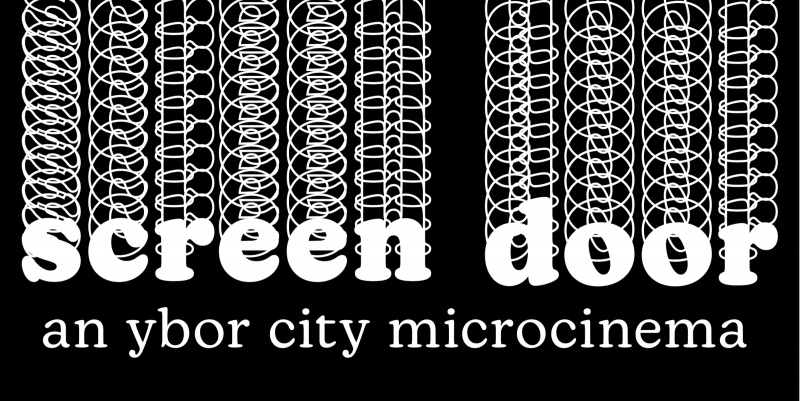
FILM ABOUT A FATHER WHO & Short Films by Mark Street and Lynne Sachs
Ybor Microcinema
July 22 & 23, 2023
Ybor Microcinema:
https://ybormicrocinema.org/
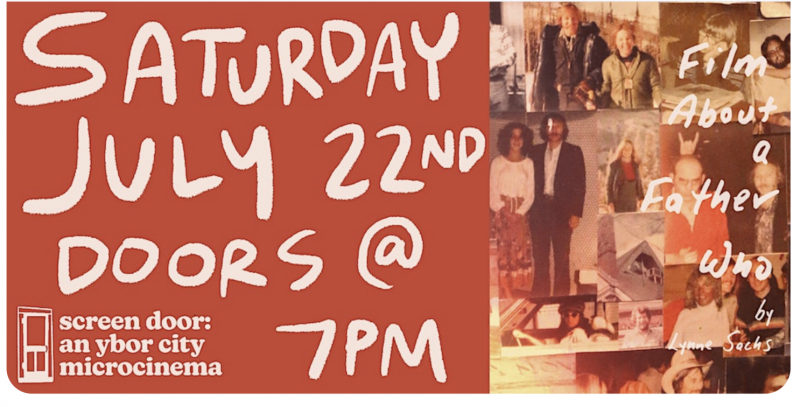
Sachs has created an indelible work that, like those within it, perseveres by way of honesty and love.
Date and time
Saturday, July 22 · 7 – 10pm EDT
Location
Screen Door Cinema Kress Annex 1624 East 7th Avenue Tampa, FL 33605
About this event
In Horace’s Odes, one among many texts where this sentiment endures, the Roman poet wrote, “For the sins of your fathers you, though guiltless, must suffer.” It’s hardly an esoteric dictum, but nevertheless it’s duly reflected in experimental filmmaker Lynne Sachs’ wholehearted documentary portrait of her father, Ira Sachs Sr. Something of a longstanding work-in-progress, the film draws from decades of footage shot by Sachs, her father, and her filmmaker brother, Ira Sachs Jr. (whose own 2005 film FORTY SHADES OF BLUE was inspired by the same so-called “Hugh Hefner of Park City”), plus others, documenting not just the sybaritic “hippie-businessman” patriarch, but also his numerous descendants. Sachs’ knotty chronicle reveals that her father has a total of nine children with several different women, two of whom the other siblings found out about only a few years back. (The film opens with Sachs brushing her elderly father’s hair, working out a particularly unpleasant snarl. “Sorry, dad,” she says. “There’s just one part that’s very tangly.” The irony is faint and benevolent, but present even so.) Sachs considers the enveloping imbroglio from her own perspective, but also takes into account the viewpoints of her eight siblings, her father’s ex-wives (including her own mother) and girlfriends, plus Ira’s mother, a gracefully cantankerous old woman in a certain amount of denial over her son’s wanton predilections and the role she played in his dysfunction. FILM ABOUT A FATHER WHO—the title an homage to Yvonne Rainer’s FILM ABOUT A WOMAN WHO…—is comprised of footage recorded between 1965 and 2019 and shot on 8mm, 16mm, VHS, Hi8, Mini DV, and digital; the fusion of all this material (by editor Rebecca Shapass) ranks among the most astounding use of personal archives that I’ve ever seen. It all exists in a state between documentary and home-movie footage, a paradigm that aptly reflects the conflict between reality and perspective, and the uncomfortable middle-ground that bisects the two. Sachs’ work often features her family, but this feels like an apotheosis of her autobiographical predisposition, likewise a question—why do the sins of the father linger?—and an answer. Among the most affecting scenes are round table discussions between the siblings where they consider revelations about their father and the implications of his actions. These scenes are heartrending not for their sadness, but rather for their naked honesty; it’s not just a film about a father who, but also a film about a love that defines a family. Sachs’ filmography is centered on infinite poetic quandaries (in voice over, she explores some of them here, such as when she muses on her father’s profession as a developer in Utah: “What happens when you own a horizon?”) and this feels like a logical conclusion to a lifetime of such profound impasses, though I’ve no doubt she’ll continue to probe life and its enigmas in a similarly masterful fashion. For all the suffering on display, Sachs has created an indelible work that, like those within it, perseveres by way of honesty and love.
_________
Screen Door Microcinema celebrates the works of Lynne Sachs, along with her feature documentary, ‘A Film About a Father Who’
Followed by a special Q/A with Aditya Sudhakaran on Saturday, July 22, 2022
In a career spanning over 30 years of filmmaking, Lynne Sachs shares her collections of compassion with an introspective lens that often centers and returns to the filmmaker herself. As in many of her films, Sachs’ personal life and struggle are deeply connected with the themes she presents. In her latest work, ‘A Film about a Father Who,’ Sachs presents an intense study of her charismatic father and unravels the strands of his lasting impacts on their family.
There is something rhythmic and inexplicably resonant when a filmmaker can point the camera at a subject and examine familial connections and tensions just with someone’s face, body and words. For Sachs, her filmmaking affirms that it’s not just the characters who should be on an adventure, but the filmmaker as well. With her latest film, Sachs skillfully persists in the sensation of being fragile while voicing that to be an artist is to be possibly caught in the conundrum of failure.
Lynne Sachs is no stranger to the Tampa Bay area and joins us for a special Q/A at Screen Door Microcinema. Her moving image work ranges from short experimental films to hybrid live performances to essay films, which have screened, won awards or been included in retrospectives at New York Film Festival, Museum of Modern Art, Sundance, Oberhausen, Viennale, Sheffield Doc/Fest.
In the spirit of great documentary filmmakers, Screendoor presents a screening of Werner Herzog’s Fitzcarraldo followed by Tampa’s own Les Blank and his study of the making of Werner Herzog’s feature in Burden of Dreams the following week.
By Aditya Sudhakaran
‘A Film about a Father Who’ plays at Screen Door Microcinema on Saturday, July 22 followed by a Q/A with Lynne Sachs. A collection of short films by Sachs’ and her spouse, filmmaker Mark Street plays Sunday, July 23.
Various Short Films introduced by the directors themselves.
Date and time
Sunday, July 23 · 3 – 6pm EDT
Location
Screen Door Cinema Kress Annex 1624 East 7th Avenue Tampa, FL 33605
The XY Chromosome Project follows the career paths of Lynne Sachs and Mark Street. To follow this path is to trace a blueprint on devotion. Working both together and individually for the past 30 years, each artist has carved out their own niche without the obvious influences of being married. They part ways to be left alone to their own creations. It is the respect for the other’s work that bonds them. Left alone, their work could not be more different. Lynne’s work is cerebral and emotional. As seen in her full length films “Your Day is My Night” and “Tip of My Tongue”. She collages the art of storytelling by layering stunning visuals while swimming between reality and performance.
Mark is the experimental film hero, a pioneer in film manipulation, an encyclopedia in the world of experimental films. His film work is solely connected to what is possible in the organics of film manipulation. They celebrate experimentation in its truest form. Yet both come down on the same line when it matters most. The line of captivation which as any artist knows is the hardest to achieve.
__________
Screen Door Cinema and Flexfest are hosting Lynne Sachs & Mark Street live and in-person at Screen Door this Sunday at 3pm! 16mm & digital program
Sunday 7/23/23
Doors 3pm
Showtime 3:30
THE X/Y CHROMOSOME PROJECT:
short films by Lynne Sachs and Mark Street
**an in-person conversation with Lynne Sachs & Mark Street follow the screening**
In 2010, Mark Street and Lynne Sachs created The XY Chromosome Project, an umbrella for their collaborative ventures. Together they have produced an array of collaborative installations, performances, and two-dimensional art works. To follow this path is to trace a blueprint on devotion. Working both together and individually for the past 30 years, each artist has carved out their own niche without the obvious influences of being married. They part ways to be left alone to their own creations. It is the respect for the other’s work that bonds them. Left alone, their work could not be more different. Lynne’s work is cerebral and emotional. She collages the art of storytelling by layering stunning visuals while swimming between reality and performance. Mark is the experimental film hero, a pioneer in film manipulation, an encyclopedia in the world of experimental films. His film work is solely connected to what is possible in the organics of film manipulation. They celebrate experimentation in its truest form. Yet both come down on the same line when it matters most. The line of captivation which as any artist knows is the hardest to achieve.” (Stephen Lipuma, Court Tree Gallery)
BLUE MOVIE, Mark Street, 1994, 5min, 16mm
DRAWN AND QUARTERED, Lynne Sachs, 1987, 4 min., silent, 16mm
ECHO ANTHEM, Mark Street, 1991, 8min, sound, 16mm
WINTERWEHEAT, Mark Street, 1989, 8min. 16mm
EPISTOLARY: LETTER TO JEAN VIGO, Lynne Sachs, 2021, 4 min., digital
GEORGIC FOR A FORGOTTEN PLANET, Lynne Sachs, 2007, 8 min., digital
THE GRAIN OF BELFAST, Mark Street, 2022, 6min Super 8 to digital
DRIFT AND BOUGH, Lynne Sachs, 2015, 6 min., 16mm to digital
CLEAR ICE FERN, Mark Street, 2023, 12min, Super 8 to digital
FLUTTER, Mark Street, 2022, 14min, digital

Films to Watch on Father’s Day
Film Fatales
June 18, 2023
https://www.instagram.com/p/CtopkIxgnh6/?hl=en
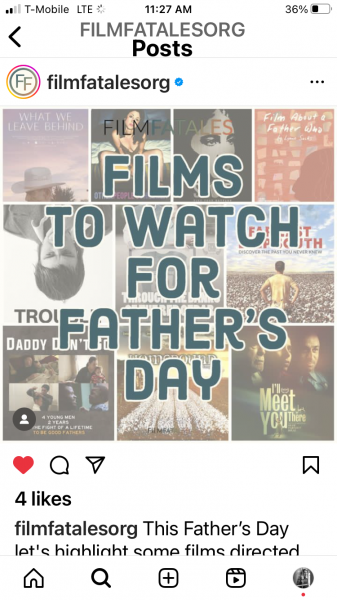
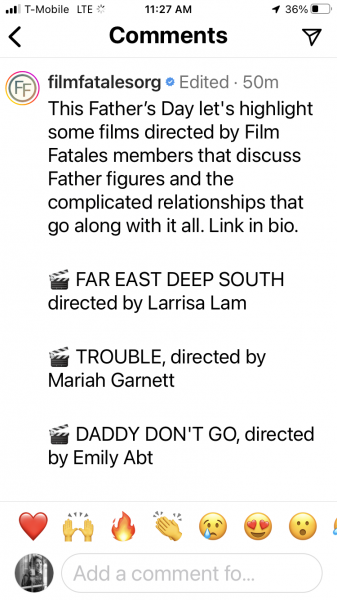
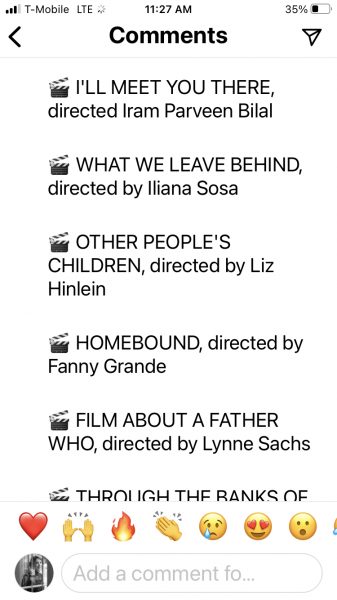
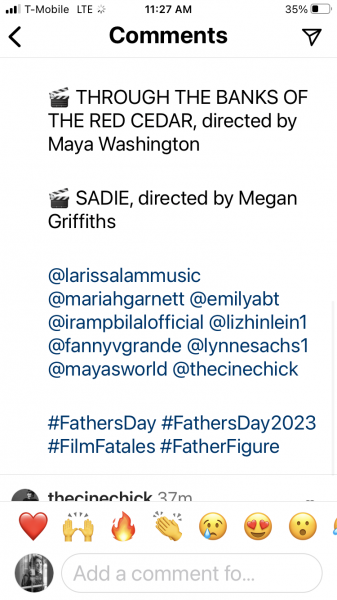

Love, Rebellion, Freedom
Beykoz Kundura
June 4, 2023
https://www.beykozkundura.com/event-detail/4june-23
LOVE, REBELLION, FREEDOM: 4 JUNE
— 15:00 —
THE SILENCE OF THE BANANA TREES
Director: Eneos Carka
2022 / 24′ / English, Hungarian; English, Turkish subtitles
Seventy-something Hungarian Mihály Fekete has filled his house in a leafy suburb of Budapest with art works made by his daughter Réka. It’s clear from the way he talks about her that she’s an important part of his life; however, they have not spoken for years. Her decision to keep distance from her father is painful for him, especially since she is ill. Despite his sorrow, he has resigned himself to do as she wishes. At his home, where this film is being shot, and where he and his family grew up, he is able to draw from a reservoir of tangible memories: vacation slides, letters, videos and children’s drawings.
The film eventually becomes a go-between in an attempt to restore a lost connection. Using abstract imagery and patient observations, documentary maker Eneos Çarka evokes a sense of transience, carrying the viewer off in a maelstrom of recollections and feelings that lead to the gripping finale.
FILM ABOUT A FATHER WHO
Director: Lynne Sachs
2020 / 103′ / Russian; English, Turkish subtitles
Over a period of thirty-five years between 1984 and 2019, filmmaker Lynne Sachs shot 8 and 16 mm film, videotape, and digital images of her father, Ira Sachs Sr., a bon vivant and pioneering businessman from Park City, Utah. FILM ABOUT A FATHER WHO is her attempt to understand the web that connects a child to her parent and a sister to her siblings. Like a cubist rendering of a face, Sachs’s cinematic exploration of her father offers multiple, sometimes contradictory, views of a seemingly unknowable man who is publicly the uninhibited center of the frame yet privately shrouded in mystery. With this meditation on fatherhood and masculinity, Sachs allows herself and her audience to see beneath the surface of the skin, beyond the projected reality. As the startling facts mount, she discovers more about her father than she had ever hoped to reveal. This exclusive streaming premiere is accompanied by a selection of experimental short films by Sachs, many of which also reflect her probing exploration of family relationships.
— 17:00 —
NELLY & NADINE
Director: Magnus Gertten
2022 / 92’ / French, English, Swedish, Spanish; English, Turkish subtitles
The voice of opera singer Nelly resonates in the middle of Ravensbrück concentration camp. Nelly and Nadine met for the first time at Christmas in 1944. They found each other again after liberation and were to stay together for the rest of their lives. Today, Nelly’s granddaughter Sylvie is about to be confronted with her grandmother’s legacy, locked in a box. The photographs, Super 8 footage and audio recordings as well as the poetic and harrowing diary entries that she comes across describe not only her grandmother’s memories of the camp, but also tell the story of her life with Nadine – a relationship that was never referred to as such by the family. “Nothing is real until it’s socially expressed”, says historian Joan Schenkar in conversation with Sylvie.
Over a period of one year, Magnus Gertten accompanies granddaughter Sylvie on her cautious search, following the traces of the untold stories that are found in the various sources. A moving film about a deep and loving lesbian relationship and the necessity of individual and collective remembrance.
Proceeds from the tickets sold in “LOVE, REBELLION, FREEDOM” screenings will be donated to earthquake relief efforts.
About Beykoz Kundura
With its history that spans over two hundred years, Beykoz Kundura is one of the most significant historical and cultural values of Turkey and operates as a professional venue letting business in addition to hosting innovative, interdisciplinary cultural artworks.
This industrial space which had been active from the Ottoman era to the Republic is a cultural heritage with undisputed value due to its contribution to the Turkish economy. Acting as a melting pot where creative ideas are formed while being inspired by the nostalgia of the former factory space set up in a land of 183 decare, Beykoz Kundura maintains its majestic existence on the Bosporus by expanding its historical cultural values with new ones thanks to its team that is driven with the idea to preserve this heritage.

Lynne Sachs: Tender Nonfictions
DAFilms
June 19, 2023
https://dafilms.com/newsletter/view/FaqDIISJsPCIxhEQvdVwfizORrvkbdETtieFAcWaMWuoX-SxpZLAmWQ-SOhznon_/106ef47c25871c598ee634962a34aeab4134f54c
Spend the weekend with Tender Non-Fictions, a program of films by experimental feminist filmmaker Lynne Sachs, who has been prolifically creating works for cinema for four decades. Her non-fiction films, represented here in 11 works of varying lengths, powerfully evoke the curiosity and richness of a life lived through art.
Based in Brooklyn, New York, Sachs defies easy classification. Instead, her work is best understood collectively as a sprawling adventure playground, stretching across continents and blending influences across the borders of distinct art forms.
Film About a Father Who
Lynne Sachs

RECENTLY ADDED, BIOGRAPHIES, EXPERIMENTAL
From 1984 to 2019, Lynne Sachs shot film of her father, a bon vivant and pioneering businessman. This documentary is her attempt to understand the web that connects a child to her parent and a sister to her siblings.
House of Science: A Museum of False Facts
Lynne Sachs

RECENTLY ADDED
Available free for registered users.
A defiant feminist mosaic on the ways that science enters our culture and defines what it is to be a woman.
A Month of Single Frames
Lynne Sachs

RECENTLY ADDED
In 1998, filmmaker Barbara Hammer had an artist residency in a shack without running water or electricity. While there, she shot film, recorded sounds and kept a journal. In 2018, she gave all of her images, sounds and writing from the residency to Sachs and invited her to make a film with the material.
Drawn and Quartered
Lynne Sachs

RECENTLY ADDED
In Medieval Europe, a criminal could be “drawn and quartered”, ripped into our four parts by heavy ropes pulled by horses. Here, Sachs appropriates this violent conceit for her own artistic purposes.
Which Way is East: Notebooks From Vietnam
Lynne Sachs

RECENTLY ADDED
In 1994, two American sisters – a filmmaker and a writer – travel from Ho Chi Minh City to Hanoi. Together, they attempt to make a candid cinema portrait of the country they witness. Their conversations with Vietnamese strangers and friends reveal to them the flip side of a shared history.
States of UnBelonging
Lynne Sachs

RECENTLY ADDED
Delving into the religious and political conflicts of the Middle East is never going to be easy, but Lynne Sachs spends three years making an effort. She attempts to make a portrait of Israeli filmmaker Revital Ohayon, a mother and peace activist who was killed near the West Bank.
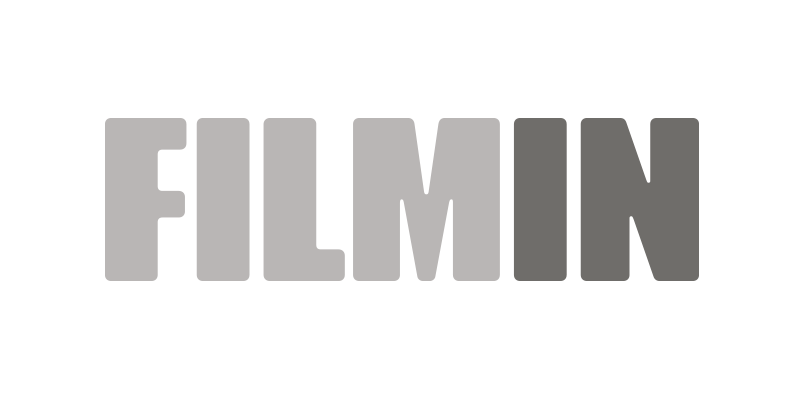
Film About a Father Who
Filmin
May 4, 2023
https://www.filmin.pt/filme/film-about-a-father-who?origin=searcher&origin-type=unique
Film About A Father Who
Lynne Sachs · Documentário
2020 · 1h 14min
HD
A irmã do cineasta Ira Sachs, Lynne Sachs, investiga a controversa figura do seu pai: um extravagante bon vivant de Utah, manipulador, egoísta e sedutor.
Sinopse
A irmã do cineasta Ira Sachs, Lynne Sachs, investiga a controversa figura do seu pai: um extravagante bon vivant de Utah, manipulador, egoísta e sedutor.
Um retrato caleidoscópico filmado entre 1984 e 2019 em vários formatos – Super 8, 16mm, VHS e HD – no qual Lynne Sachs mergulha na polémica figura do seu pai, Ira Sachs Sr., um bon vivant de aparência extravagante de Utah, empresário da indústria hoteleira, manipulador, egoísta e carismático sedutor, que levou uma vida cheia de segredos, pai de nove filhos (incluindo também o cineasta Ira Sachs Jr.) com cinco mulheres, alguns dos quais permaneceram escondidos para o resto da família durante anos. Reflexão sobre a vida deste homem e como as suas decisões afectaram toda a família, é também um estudo da passagem do tempo tanto na forma como no conteúdo.
English:
Filmmaker Ira Sachs’ sister, Lynne Sachs, investigates her controversial father figure: an extravagant Utah bon vivant, manipulative, selfish and seductive.
Synopsis
Filmmaker Ira Sachs’ sister, Lynne Sachs, investigates her controversial father figure: an extravagant Utah bon vivant, manipulative, selfish and seductive.
A kaleidoscopic portrait filmed between 1984 and 2019 in various formats – Super 8, 16mm, VHS and HD – in which Lynne Sachs delves into the controversial figure of her father, Ira Sachs Sr., a flamboyant-looking bon vivant from Utah, industry entrepreneur hotelier, manipulator, selfish and charismatic seducer, who led a life full of secrets, father of nine children (also including filmmaker Ira Sachs Jr.) with five women, some of whom remained hidden from the rest of the family for years. A reflection on this man’s life and how his decisions affected the entire family, it is also a study of the passage of time in both form and content.
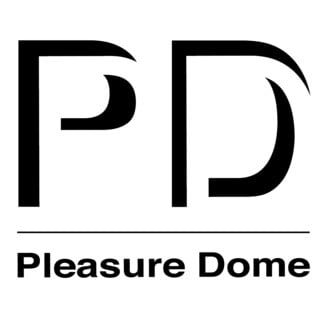
Blood Ties: Reimagining Interconnection (In-person screening: May 23)
Pleasure Dome
May 23, 2023
https://pdome.org/2023/reimagining-interconnectedness-in-person-screening-may-23-new-world-cinema/
Join us for our second in-person screening of the year at Small World Music Centre at Artscape Youngplace in Toronto. Guest programmed by Clare Samuel, this screening features works Lynne Sachs, Elisa Gonzalez, Keisha Rae Witherspoon, Tanya Lukin Linklater, and Hao Zhou. Curated into a screening called “Blood Ties,” each film reflects different understandings and re-imaginings of what it means to be interconnected with each other and the world around us. Featuring an in-person talk by Brooklyn-based filmmaker Lynne Sachs. Co-presented by Pleasure Dome, the Canadian Filmmakers Distribution Centre, and Kino Rebelde.
Part of Spring 2023
When: Tuesday, May 23 from 6pm-9pm ET
Where: Small World Music Centre, Artscape Youngplace, 110 Shaw Street, Unit 101
This is a co-presentation between Pleasure Dome, Kino Rebelde (Lisbon, Portugal), and the CFMDC (Canadian Filmmakers Distribution Centre).
The screening will be followed by a live, in-person conversation by Brooklyn-based filmmaker Lynne Sachs.
Screening programme:
Lynne Sachs, Maya at 24, 04:27
Elisa Gonzalez, Freya, 22:13
Tanya Lukin Linklater, We Wear One Another, 25:13
Intermission
Keisha Rae Witherspoon, T, 13:50
Hao Zhou, Frozen Out, 5:00
Lynne Sachs, Film About a Father Who, 1:14:00
Following the screening, we will have a Q&A with the artist Lynne Sachs. The screening is free and open to the public. Everyone is invited to attend.
Crucial Viewing
Cine-file
February 17, 2023
https://www.cinefile.info/cine-list/2022/02/17/022323
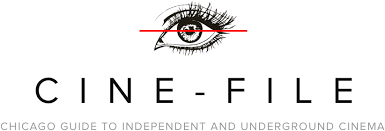
CRUCIAL VIEWING
Lynne Sachs x 2
Gene Siskel Film Center
Lynne Sachs’ FILM ABOUT A FATHER WHO (US/Documentary) Review by Kat Sachs
Monday, 6pm
In Horace’s Odes, one among many texts where this sentiment endures, the Roman poet wrote, “For the sins of your fathers you, though guiltless, must suffer.” It’s hardly an esoteric dictum, but nevertheless it’s duly reflected in experimental filmmaker Lynne Sachs’ wholehearted documentary portrait of her father, Ira Sachs Sr. Something of a longstanding work-in-progress, the film draws from decades of footage shot by Sachs, her father, and her filmmaker brother, Ira Sachs Jr. (whose own 2005 film FORTY SHADES OF BLUE was inspired by the same so-called “Hugh Hefner of Park City”), plus others, documenting not just the sybaritic “hippie-businessman” patriarch, but also his numerous descendants. Sachs’ knotty chronicle reveals that her father has a total of nine children with several different women, two of whom the other siblings found out about only a few years back. (The film opens with Sachs brushing her elderly father’s hair, working out a particularly unpleasant snarl. “Sorry, dad,” she says. “There’s just one part that’s very tangly.” The irony is faint and benevolent, but present even so.) Sachs considers the enveloping imbroglio from her own perspective, but also takes into account the viewpoints of her eight siblings, her father’s ex-wives (including her own mother) and girlfriends, plus Ira’s mother, a gracefully cantankerous old woman in a certain amount of denial over her son’s wanton predilections and the role she played in his dysfunction. FILM ABOUT A FATHER WHO—the title an homage to Yvonne Rainer’s FILM ABOUT A WOMAN WHO…—is comprised of footage recorded between 1965 and 2019 and shot on 8mm, 16mm, VHS, Hi8, Mini DV, and digital; the fusion of all this material (by editor Rebecca Shapass) ranks among the most astounding use of personal archives that I’ve ever seen. It all exists in a state between documentary and home-movie footage, a paradigm that aptly reflects the conflict between reality and perspective, and the uncomfortable middle-ground that bisects the two. Sachs’ work often features her family, but this feels like an apotheosis of her autobiographical predisposition, likewise a question—why do the sins of the father linger?—and an answer. Among the most affecting scenes are roundtable discussions between the siblings where they consider revelations about their father and the implications of his actions. These scenes are heartrending not for their sadness, but rather for their naked honesty; it’s not just a film about a father who, but also a film about a love that defines a family. Sachs’ filmography is centered on infinite poetic quandaries (in voice over, she explores some of them here, such as when she muses on her father’s profession as a developer in Utah: “What happens when you own a horizon?”) and this feels like a logical conclusion to a lifetime of such profound impasses, though I’ve no doubt she’ll continue to probe life and its enigmas in a similarly masterful fashion. For all the suffering on display, Sachs has created an indelible work that, like those within it, perseveres by way of honesty and love. Followed by a post-screening conversation between Sachs and local filmmaker Lori Felker. (2020, 74 min, DCP Digital) [Kat Sachs]
Lynne Sachs and Lizzie Olesker’s THE WASHING SOCIETY (US Documentary)
Thursday, 6pm
Much like filmmaker Lynne Sachs’ acclaimed 2013 documentary hybrid YOUR DAY IS MY NIGHT, THE WASHING SOCIETY, a medium-length quasi-documentary she co-directed with performer-playwright Lizzie Olesker, penetrates the hidden worlds that exist adjacent to us. Just as in YOUR DAY Sachs explored the circumstances of immigrants living in “shift-bed” apartments in New York City’s Chinatown, she and Olesker here probe the mysterious world of urban laundromats, where workers—often immigrants or those from similarly disenfranchised groups—take on a task that’s historically been outsourced, at least in some capacity—that of washing and folding peoples’ laundry. The historical evocation is literal; the film’s title and one of its recurring motifs refer to a real organization from the 1880s called the Washing Society, which started in Atlanta and was comprised of washerwomen (most of them Black) who came together to demand higher pay and opportunities for self-regulation. A young actor, Jasmine Holloway, plays one such laundress, reading from texts written by the organization and whose presence haunts the modern-day laundromats. Soon other ‘characters,’ both real and fictitious, take their places in this mysterious realm, hidden away in plain sight. Ching Valdes-Aran and Veraalba Santa (actors who, along with Holloway, impressed me tremendously) appear as contemporary laundromat workers, representing ethnicities that tend to dominate the profession. It’s unclear at first that Valdes-Aran and Santa are performing, especially as real laundromat workers begin to appear in documentary vignettes, detailing the trials and tribulations of their physically demanding job. The stories are different, yet similar, personal to the individuals but representative of a society in which workers suffer en masse, still, from the very injustices against which the Washing Society were fighting. The actors’ scenes soon veer into more performative territory, a tactic which Sachs deployed, albeit differently, in YOUR DAY IS MY NIGHT. Much like that film, the evolution of THE WASHING SOCIETY included live performances in real laundromats around New York City, some scenes of which, it would seem, are included in the film. There’s a bit of voiceover from Sachs, explaining the directors’ mission to go into many different laundromats, and from voice actors who read monologues that are tenuously connected to Valdes-Aran and Santa’s ‘characters.’ There are also visceral interludes involving accumulated lint that add another layer to the experimentation; there’s a bluntness to the filmmakers’ artistic ambitions, as with much of Sachs’ work, that makes the intentions discernible but no less effective. Sachs has previously employed egalitarian methods, such as considering the people she works with to be collaborators rather than subjects, cast, and crew. In a film about unseen labor, seeing that labor—notably in a self-referential scene toward the end in which a group of said collaborators prepare to exit a laundromat after shooting—is important. In light of what’s happening now, when so much essential labor is either coyly unseen or brazenly unacknowledged (or both), it’s crucial. Like the 1880s’ washerwoman, the victims (and, likewise, the combatants) of capitalism are ghosts that haunt us. Followed by a post-screening conversation between Sachs and Cine-File managing editor Kat Sachs. (2018, 44 min, Digital Projection) [Kat Sachs]
—
Screening as part of a shorts program entitled “A Collection & a Conversation,” which includes Sachs’ short films DRIFT AND BOUGH (2014, 6 min, Digital Projection); MAYA AT 24 (2021, 4 min, Digital Projection); VISIT TO BERNADETTE MAYER’S CHILDHOOD HOME (2020, 3 min, Digital Projection) and SWERVE (2022, 7 min, Digital Projection).
MANAGING EDITORS // Ben and Kat Sachs
CONTRIBUTORS // Rob Christopher, Maxwell Courtright, Steve Erickson, Marilyn Ferdinand, Raphael Jose Martinez, Jonathan Leithold-Patt, Michael W. Phillips, Jr., Joe Rubin, Harrison Sherrod
:: FRIDAY, FEBRUARY 10 – THURSDAY, FEBRUARY 16 :: →
Cine-File is a volunteer run resource for Chicago cinephiles. Subscribe to our weekly email and follow us on Facebook and Twitter.